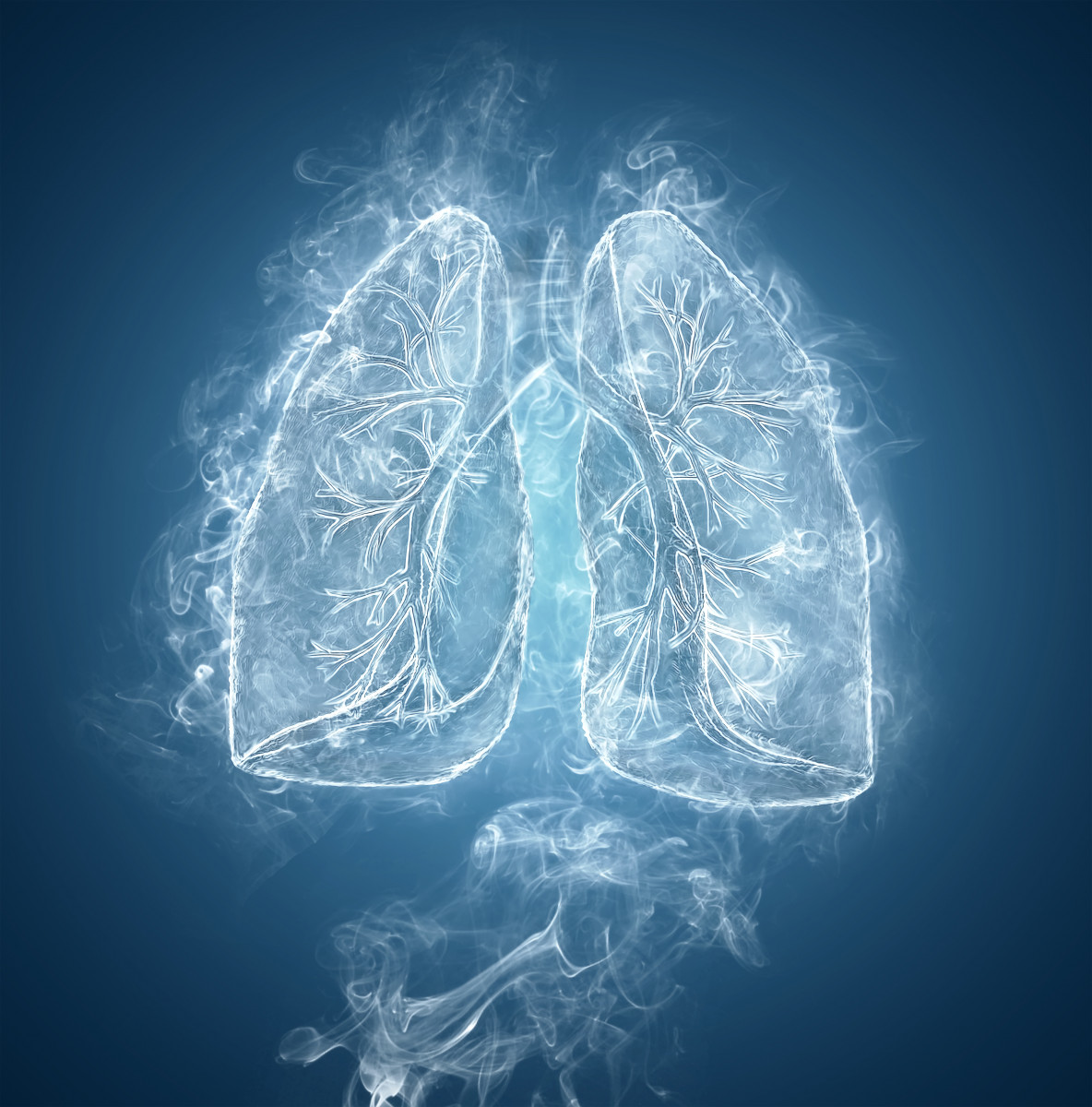MP1032 May Protect Lungs From Oxidative Stress, COPD Model Suggests
Written by |

MP1032, an anti-inflammatory molecule developed by MetrioPharm, inhibits the formation of 3-nitrotyrosine — a biomarker of nitrogen reactive species — induced by cigarette smoke in the air sacs of a lung model of chronic obstructive pulmonary disease (COPD), a study has found.
The research suggests that MP1032 may protect the lungs from oxidative stress, preventing the damage to air sacs that characterizes the condition.
Smoking is well-established as being detrimental to lung health. In fact, smoking is known to cause the development of COPD in about 85% to 90% of cases.
Cigarette smoke contains toxic reactive oxygen species (ROS) and nitrogen reactive species (RNS) that, if not effectively cleared by the body’s antioxidant defenses, can induce oxidative and nitrosative stress, causing inflammation and severe damage to the lungs.
MP1032 is an oral, small molecule that works to ease chronic inflammation caused by excess ROS molecules. It is an ROS scavenger (removes ROS molecules), and has shown promise in multiple chronic inflammatory diseases, including multiple sclerosis and rheumatoid arthritis, and has demonstrated a good safety and efficacy profile in a Phase 2 clinical trial (NCT03706209) for psoriasis.
In the preclinical study, MetrioPharm set out to test MP1032 in a model of COPD.
“Since the increased formation of reactive oxygen species (ROS) is very fundamental for the development of the disease, we see great opportunities for an ROS scavenger, such as MP1032,” Sara Schumann, PhD, lead investigator, project manager of research and development for MetrioPharm, said in a recent interview available on the company’s website.
Researchers used an isolated heart and lung system cultured in the lab, and exposed it to cigarette smoke. In their model, the smoke increased the amount of 3-nitrotyrosine, a biomarker of RNS that is also high in COPD patients, making it a suitable model to study the condition.
Next, the team tested if treatment with MP1032 lowered the levels of 3-nitrotyrosine in the lung model. They found a clear dose-dependent effect in all three doses tested, meaning that the higher the dose of MP1032 used, the lower the levels of 3-nitrotyrosine in the alveoli, or air sacs.
Notably, the highest dose reduced 3-nitrotyrosine to levels seen in a control lung system not exposed to cigarette smoke.
“The results for this early COPD model could have hardly turned out any better,” Schumann said in a press release. “This provides us with a very solid basis for further development of our compound in COPD.”
Since 3-nitrotyrosine is also a biomarker of disease severity in COPD, Schumann believes MP1032 may also have a “functional effect on the disease process itself.”
MetrioPharm is now pursuing the development of MP1032 in an inhaled form, designed specifically for COPD patients.
“It is very motivating to see the potential in this yet untapped indication,” said Wolfgang Brysch, MD, MetrioPharm’s CEO. “We are currently assessing the possibilities of optimizing our compound MP1032 in a formulation specifically tailored to COPD patients.”




